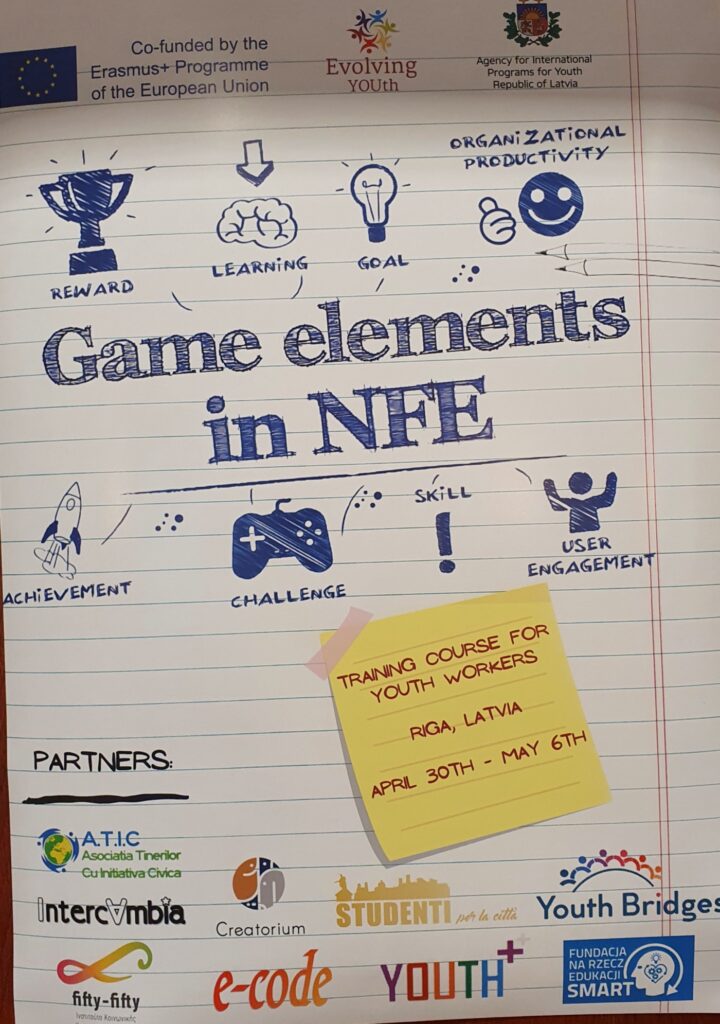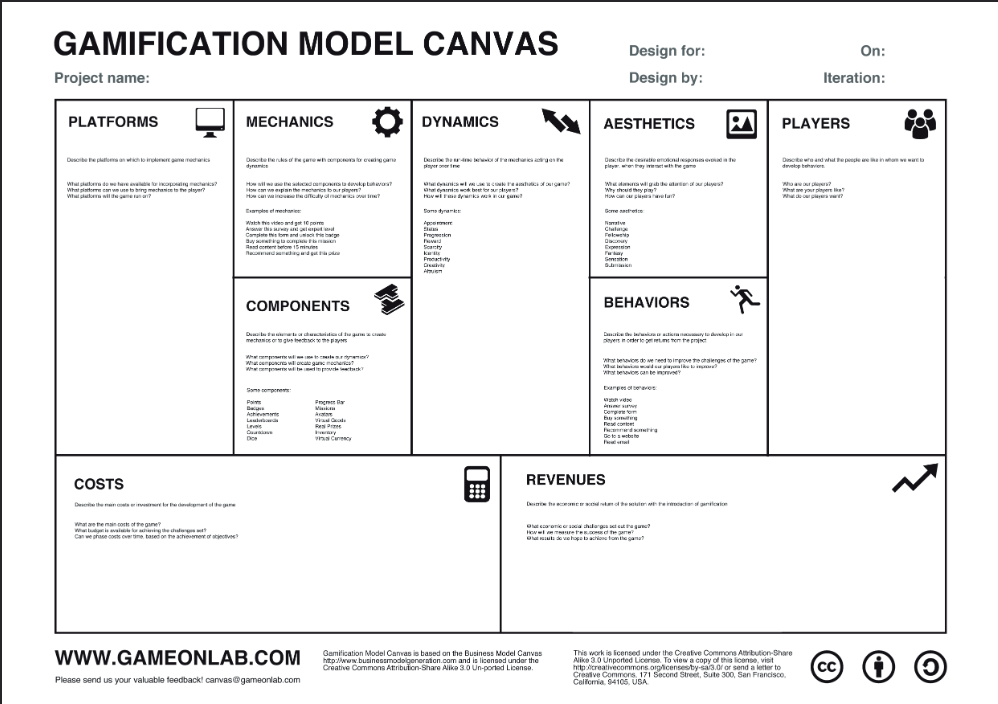
“Game elements in NFE” was an Erasmus plus KA1 training course implemented from 30th of April to 6th of May, 2022, in Riga, Latvia. It involved 24 youth workers from 10 different countries (Latvia, Spain, Norway, Poland, Romania, Hungary, Slovakia, Greece, Czech Republic, and Italy).
The new generation has grown in the digital era, therefore they have different learning styles, new attitudes to the learning process and higher requirements for teaching and learning. Educators are facing challenges on how to implement new approaches and methods that would allow young people to be active participants with strong motivation and engagement to their own learning.
One of the efficient strategies that can be used is gamification — it can be integrated into all platforms and can help to engage student learning. According to numerous research, the use of game mechanics improves the ability to learn new skills by40% (Giang, 2013), and increases motivation by 67 % (Rahman 2018). Game approaches lead to a higher level of commitment and motivation of users to learn.
https://direct.mit.edu/books/book/3066/The-Gameful-WorldApproaches-Issues-Applications
The main aim of the project was to create more innovative ideas within youth work on the methodology that is being used to educate youth by allowing youth workers to share the best practices on gamification and digital learning from their local communities to international communities. This, in turn, will increase their knowledge of the broader youth diversification in the European community of other countries.
Through different non-formal education methods youth workers explored intercultural learning concepts through conventional and digital games, learned about game dynamics, mechanics, and other game-building concepts, exchanged their organization’s best practices, took part in different workshops, and simulations, engaged in discussions, they were introduced to Youthpass competencies, Erasmus plus opportunities and had a chance to create their own game based on previously gained knowledge.

In order to strengthen the network of organizations and participants NGO fair was implemented during which every organization had a chance to present itself and its activities and future plans for cooperation and development. New partnerships were made and based on new connections the partners will implement new projects in the future — one of the tools explored is dedicated to improving the quality of project writing and will be useful to improve the quality of future projects.
At the end of the course, participants received YouthPass certificate as recognition of the skills and competencies gained during the seminar.
All the tools discovered and used during the seminar are collected in the booklet that has open access